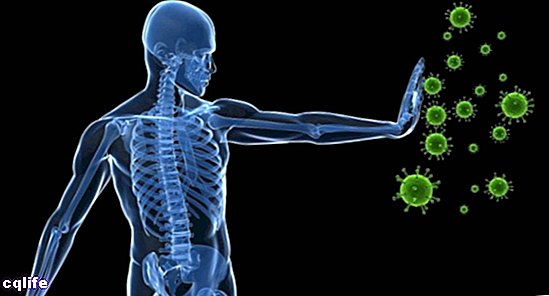- What is the immune system?
- Immune system function
- How is the immune system made up?
- Immune system diseases
We explain what the immune system is and what it does. In addition, how it is shaped and what diseases compromise it.

What is the immune system?
It is known as the immune system, immune system or immune system to a defensive mechanism of the human body and others living beings, which allows through coordinated physical, chemical and cellular reactions, to keep the organism free of foreign and potentially harmful agents, such as toxins, poisons, or viral, bacterial and other infections microorganisms.
These foreign bodies and elements are called antigens, and its presence in the body unleashes a highly specialized reaction to prevent it from spreading or staying in the body. This reaction, called antigen-antibody, consists mainly of the segregation of cells and of substances defensive, such as different types of white blood cells (antibodies), whose mission is to recognize and expel organism the invaders.
However, the immune system also has mechanical or physical strategies that include inflammation of the affected area (such as method isolation), the increase in temperature body or fever (to make the body less hospitable to invaders), and other specialized responses.
The immune system is made up of various cells and organs of the body, especially the organs and glands that produce white blood cells, but also a whole series of mucous membranes and insulating barriers to prevent the entry of foreign elements. In any case, when defending the body, many other systems collaborate or are affected by the functioning of the body's defenses.
Immune system function
The immune system operates on the basis of its two variants: the natural immune system and the acquired or learned one:
- Natural immune system. Also called innate or nonspecific immune system, it is born with individuals since it consists of defense mechanisms of the chemistry of the life. It is common to a greater or lesser extent to almost all living beings, even the simplest and unicellular forms, but they are capable of dealing with invaders by secreting enzymes Y protein defensive.
- Acquired immune system. Already exclusive to the vertebrates and of the most complex living beings, it has cells totally dedicated to the defense and cleaning of the organism, highly specialized in its task. Its name comes from the fact that it adapts and has a cellular “memory” to recognize the infectious agents with which it has already fought, so that it can better deal with them in the future. The latter is what vaccines use: they give you microbes dimmed so you can feed your memory without first having to suffer from the disease.
How is the immune system made up?
The immune system is made up of a network of white blood cells that runs through the body and that has the presence of both the blood, bone marrow and other substances of the body, as well as the lymphatic system that it uses to move along the lymph nodes and organs of filtered from the body, such as the spleen.
These white blood cells can be of two types:
- Lymphocytes They are in charge of detecting and recognizing foreign bodies, as well as learning their characteristics to add them to the immunological memory, to recognize them in case they re-enter the body.
- Phagocytes Those in charge of dealing with foreign bodies, that is, doing the dirty work: they engulf (encompass within) the invaders and then expel themselves from the body with them inside, through urine, feces, mucus or other secretions.
Immune system diseases
Despite the extraordinary nature of the immune system, it is not always 100% effective. In many cases, in fact, its operation is compromised and requires the incorporation of drugs. These cases are:
- Allergies That they are nothing more than a disproportionate reaction of the immune system, which responds to the presence of a harmless substance as if it were an attacker.
- Autoimmune diseases. In which the immune system becomes the trouble, as it attacks healthy cells or tissues and the organism itself, mistakenly identifying them as infected or as foreign.
- Immunosuppressive diseases. Like AIDS, whose infectious agents precisely attack the white blood cells in charge of defense, through various strategies that do not allow their ordinary capture and expulsion. As a result of these diseases, people are immunosuppressed (that is, defenseless) and other opportunistic diseases can take advantage of the condition.
